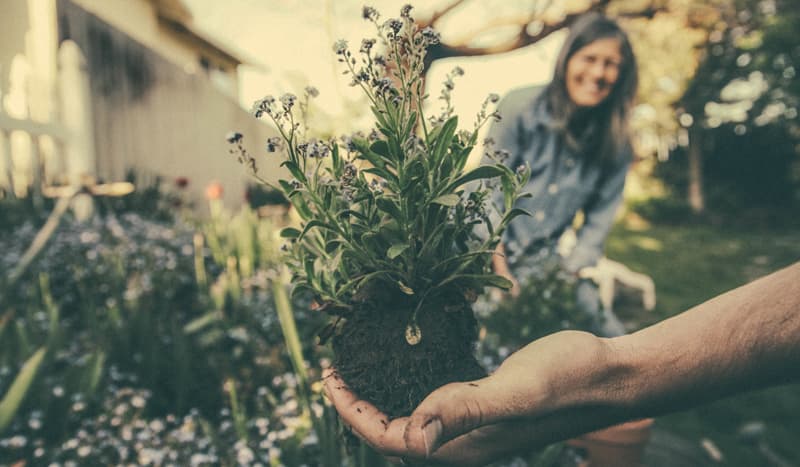Organic Gardening & Weeds

If you love gardening but dont want to use lots of harmful substances and pesticides how can you garden and still be organic? Removing the weeds the best way possible is not always simple, but check our tips.
Whether you are organic gardening or regular gardening, a weed is a plant that is growing where it is not wanted, it can have strong and healthy growth, and is able to overgrow valued plants by overcrowding, thus depleting soil nutrients and moisture that would otherwise be available to preferred plants.
Remove Weeds By Hand
Removing weeds by manually pulling them from the ground is the most common form of organic gardening weed control. It's easy to do, doesn't pollute the environment with toxins, and is also cost effective because it's free.
Grab the plant close to the ground, encircling its leaves with the fingers of one hand. Take a small-bladed knife or sharp-edged hand trowel with your other hand and use it in the soil to slide under the roots of the weed to loosen them and help remove the plant from the soil. Use care to avoid disturbing the surrounding soil, mulch, or leaf litter to prevent bringing deeply buried weed seeds closer to the surface where they could sprout.
Use Boiling Water
Boiling water will kill any plant growth it touches. It is very inexpensive and simple to use. It is superb for killing annual weeds and can control and/or kill perennial weeds. It is a popular non-toxic means for killing weeds growing in cracks and driveways.
Resprouting Plants
Some perennial plants with long taproots (such as dandelion) may resprout from the lower root area if it has not been scalded. In a lawn you can remove the top growth and dig a hole above the root, manually removing some of the root if possible. Pour the kettle water into the hole and it will seep down and kill whatever sections of the weed root it can reach. Refill the hole with soil and sow some grass seed right away so there is no bare spot where airborne weed seeds can take hold.
If a weed resprouts in a sidewalk crack or driveway repeat the boiling water treatment. Each time the weed resprouts the growth will be smaller and weaker and the most stubborn perennial weeds will eventually die, usually after two or three treatments.
You Might Like
Kill Garden Weeds Naturally
Kill weeds naturally. A useful guide with tips for killing outdoor weeds naturally while still helping the environment.Best Way To Remove Bathroom Mould?
Find out the best way to remove bathroom mould with our informative article, all you need to know to make your bathroom beautiful again.How To Remove Ticks From Your Pet
How to remove ticks from pets. A useful guide to help you if you need to remove ticks from pets.What Are Organic Foods?
Find out what organic foods actually means with our quick explanantion of legally and practically! From the exact requirements through to how to check labels - our advice should see you learn moreHow Lemons Can Help You Revise
Its that time of year again when revision fever hits. New research suggests that there are ways you can maximise your revision time and they include smelling lemons!
Useful Websites
- Crocus
Crocus.co.uk is the UK's biggest gardening website and every gardener’s Eden. Since 2000 this is the place to get your plants and gardening gear. - Deckbuilders
The first choice for garden decking and timber decking in the UK. Whatever the shape or levels of your garden we will design an outstanding decking solution for you to enjoy all year round. - Rolawn Direct
Buy from the UK's leading high quality supplier of turf, topsoil & bark. - Lawn Care
Visit our site for free resources on lawn care tips, landscaping ideas, and gardening advice. - Wildchicken : nature & technology
Garden design software developed by a landscape designer. Research, design and print gardening projects or ideas. Flexible and easy to learn tools for professional and amateur gardeners and learners. - Garden Items
With a wide selection of premium garden accessories from solar garden lights and water features, to hotspot fire pits and patio heaters - excellent value for money. - Add Your Website Here